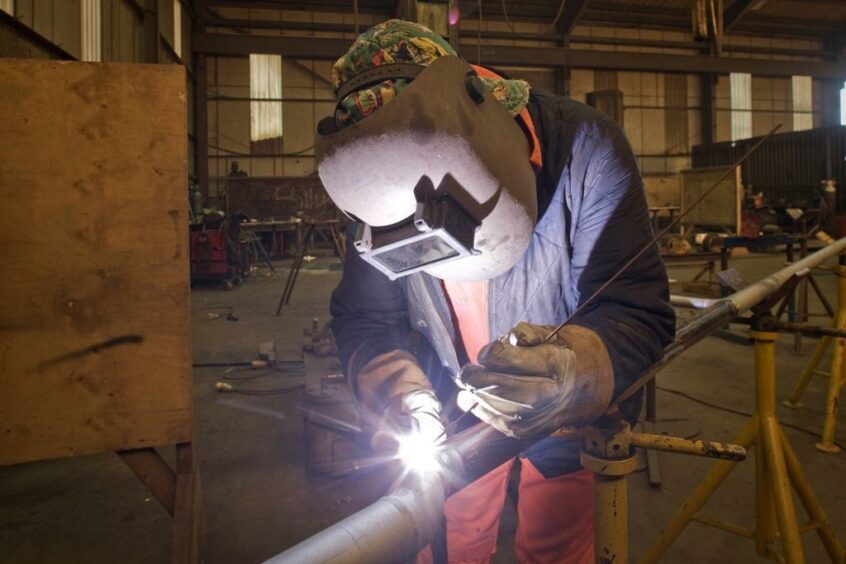
A UK developer has sparked debate on capturing economic value from the country’s offshore wind boom, particularly on “black trades” and manufacturing.
Speaking at an event hosted by Vysus Group in Aberdeen on Wednesday, Allan MacAskill, technical director of Flotation Energy, said the UK needs to be focused on what it can achieve, particularly as the country seeks 50GW by 2030.
Discussion turned to manufacturing and the welders which might be needed to capture value, though Mr MacAskill questioned whether that tactic is “sensible”.
It comes amid lessons from the onshore and fixed wind markets in the UK, which have, in the main, seen much of their lucrative manufacturing work go overseas..
On the wind boom, he said: “Do we really want to go back to the black trades? Is that still something that Britain wants to do as a country or Scotland wants to do?
“I think we really have to start thinking about what it is we want to actually achieve, and also to determine whether we want to reinvent things that we did in the past or whether we are going to say ‘well, it’s like onshore wind, we did not make huge amounts but we’re generating a hell of a lot of electricity from it’
“Are we going to be the builders of it or are we going to be the managers, the designers and the developers of it?
“I don’t know the answer but I’m not convinced that by building all the components of offshore wind here in the UK is a sensible thing to do.”
High cost centre
Mr MacAskill was joined by Andy Rodden, director of ETZ, David Wilson of the NSTA, Vysus CEO David Clark and moderator Neil Golding, director at the EIC.
Mr Golding discussed localisation issues, noting the UK is “generally seen as a high cost centre”, raising questions of how it can stay competitive in a global supply chain, and ask “what is it that we can actually supply, not just here in the UK and then export globally going forward as well?”
Mr MacAskill said other countries like Denmark, Germany and the Netherlands are already looking at this in a targeted fashion.
“The point is they made a decision as countries and as businesses to do something about that and to make themselves competitive, even in a high wage economy.
“It’s not being a high wage economy that’s the problem. It’s about not being efficient and effective. That’s the problem.”
One audience member took umbrage to Mr MacAskill’s suggestion against UK manufacturing, pointing to work carried out in the 1970s by Kishorn Port in creating huge oil platforms like Maureen and Ninian.
Mr MacAskill retorted by pointing out the gap of work between that period and the point when some of those platforms were sent for decommissioning.
He also pointed to his own experience with Talisman Energy in building the Beatrice wind turbines in the North Sea.
The now-collapsed Bi-Fab won initial contracts but were soon bested by more efficient European contractors.
£300m conversation
Andy Rodden of the ETZ, which is based near the new south harbour in Aberdeen, agreed with the need for targeted thinking on the value, particularly given the stretched “global supply chain” as markets like California overtake Scotland’s ambitions on floating wind.
However, he added: “I think this space for welding trades and other sort of black trades and some traditional skills will be needed.
“40% of welders in Scotland are aged between 55 and 65. So they’re going to go in the next 10 years, so they will need to place the and so on just to accommodate what we have today.
“We ought to look at what do we want to do as a nation. Do we want to build jackets? Do we want to manufacture tubulars? Or do we want to invest in the next generation of hydrogen technology, how do we move it, how do we ship it? And some of the smart IP that you export. And I think that’s a fundamental question the industry has just now, what do we want to do here?”
That comes amid an “ongoing” discussion in the UK about a cable factory, which Mr Rodden described as a “£300m investment”.
“They’re going to make one of these a year or two years or three years. So it’s about do we want that in the UK?
“And that’s a fundamental question. What will our resources allow us to do? We don’t have that much port space, we don’t have that much hinterland behind ports which is a bigger problem.”
Black Trades and wind supply chain
David Clark of Vysus and David Wilson of NSTA both agreed on supply chain capacity being an issue.
Mr Clark said: “We’ve constructed in the UK a significant majority or significant portion of the world’s fixed wind, but in reality we’ve got very little with supply chain actually used to build that.
“How do we get the the resources needed to develop the talent, whether that’s from an engineering perspective and indeed construction, manufacturing, that is a decade long programme.
“I know there’s some good work going on to start that, but building the skills and building momentum within the universities, schools. Bringing them back into the engineering and into that space is going to be key.”
On the issue of black trades for the wind boom, Mr Wilson suggested that the historic ad-hoc nature of contracting in the oil and gas industry is not attractive for young people seeking a career in energy.
“Historically black trades – for us coming from like in construction background and oil and gas – wasn’t an attractive prospect for young people to get into because we were seen as being an industry that was being hit pretty hard politically and in the press and an industry was in decline.
“It was also an industry where operators and contractors contracted on a kind of ad hoc basis which led to an ad hoc workforce.
“That’s not an attractive prospect for young people. So for a supply chain to work you need people with the skills and the competencies. So we need to address that and actually make this a really attractive prospect for young people to get into the industry, whether it’s engineering and the technology side of things or whether it’s the black trades and that side of things.”

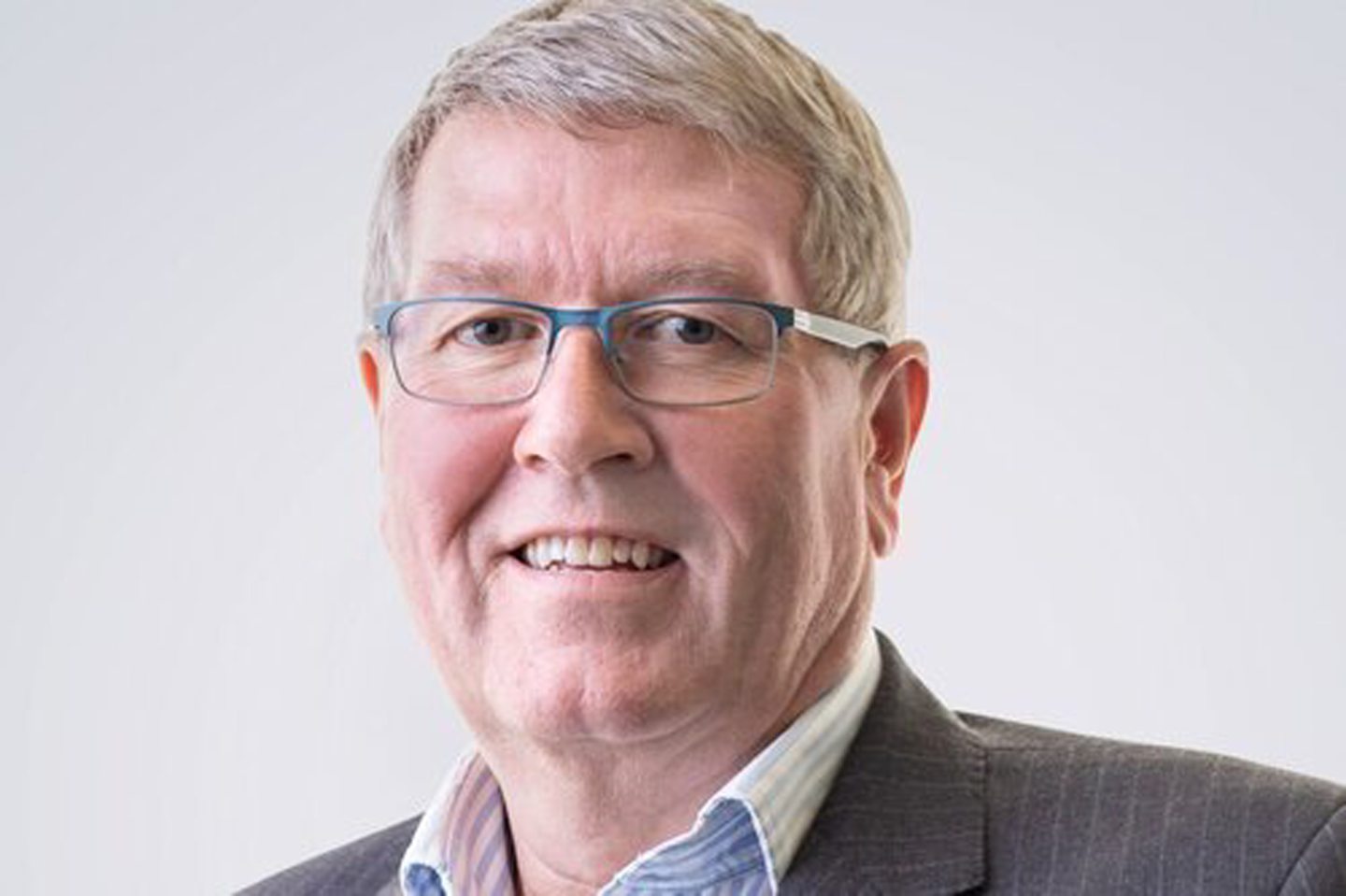 © Supplied by Flotation Energy
© Supplied by Flotation Energy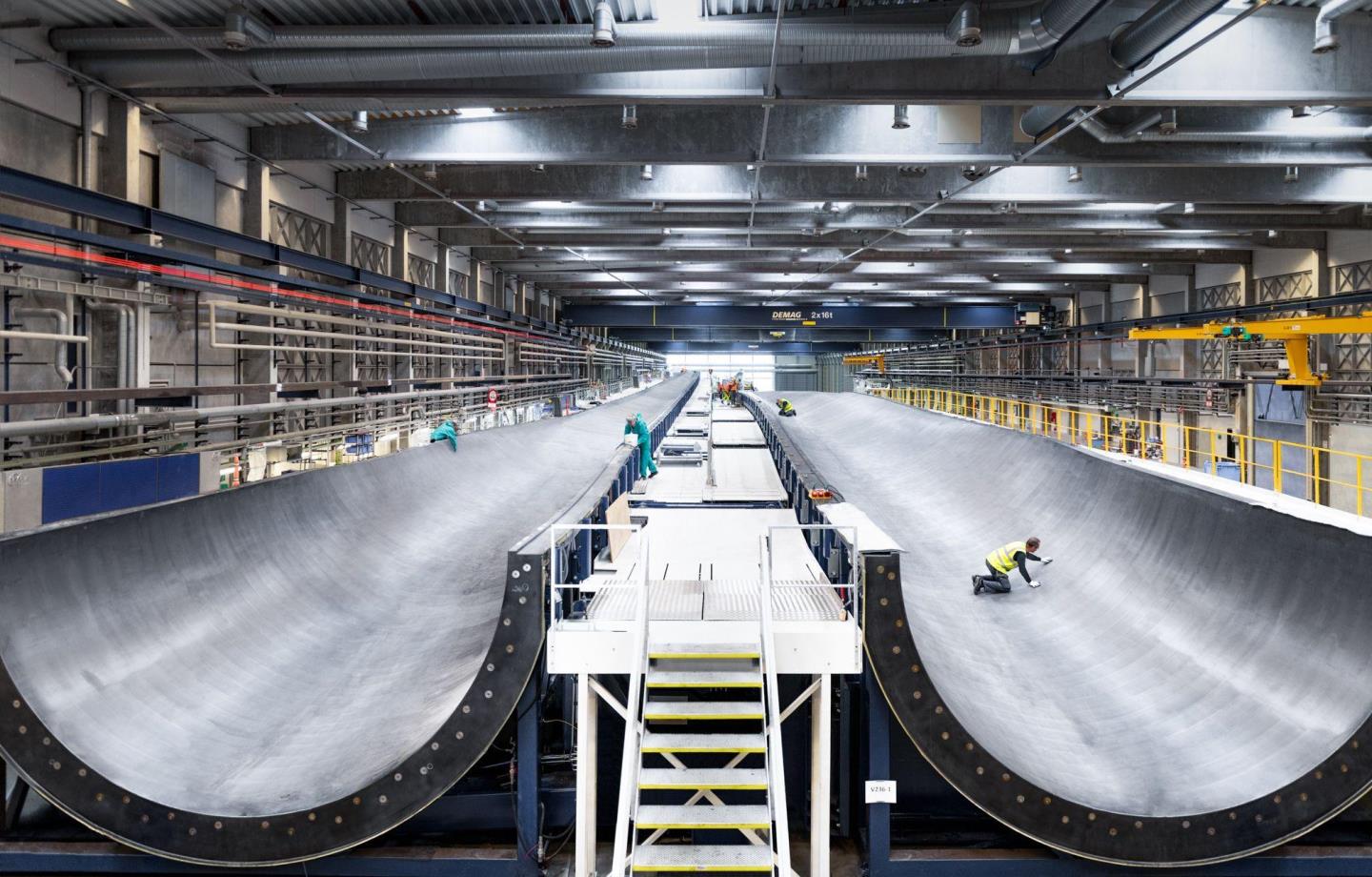 © Courtesy of Vestas Wind Systems A/S
© Courtesy of Vestas Wind Systems A/S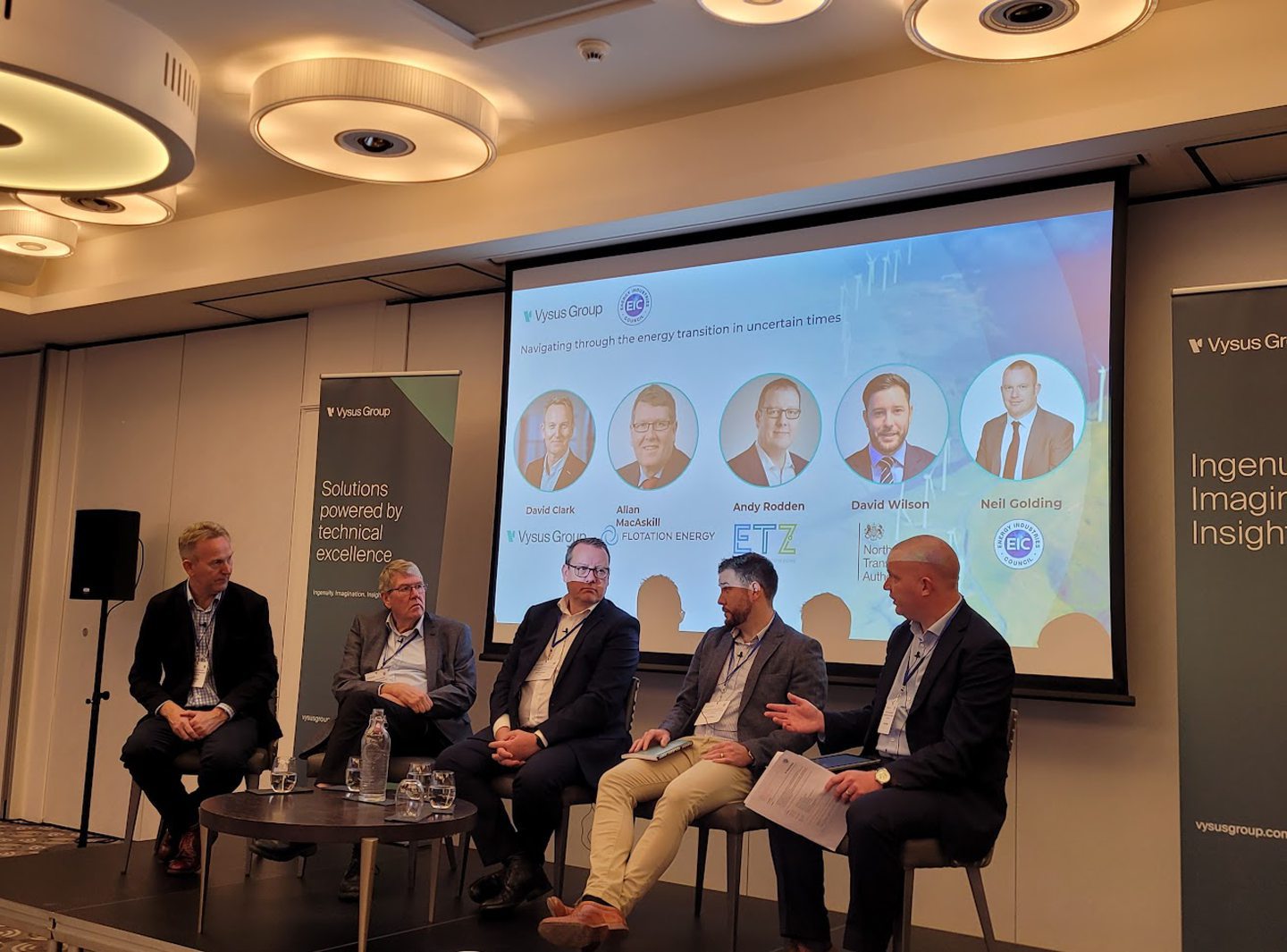 © DCT Media
© DCT Media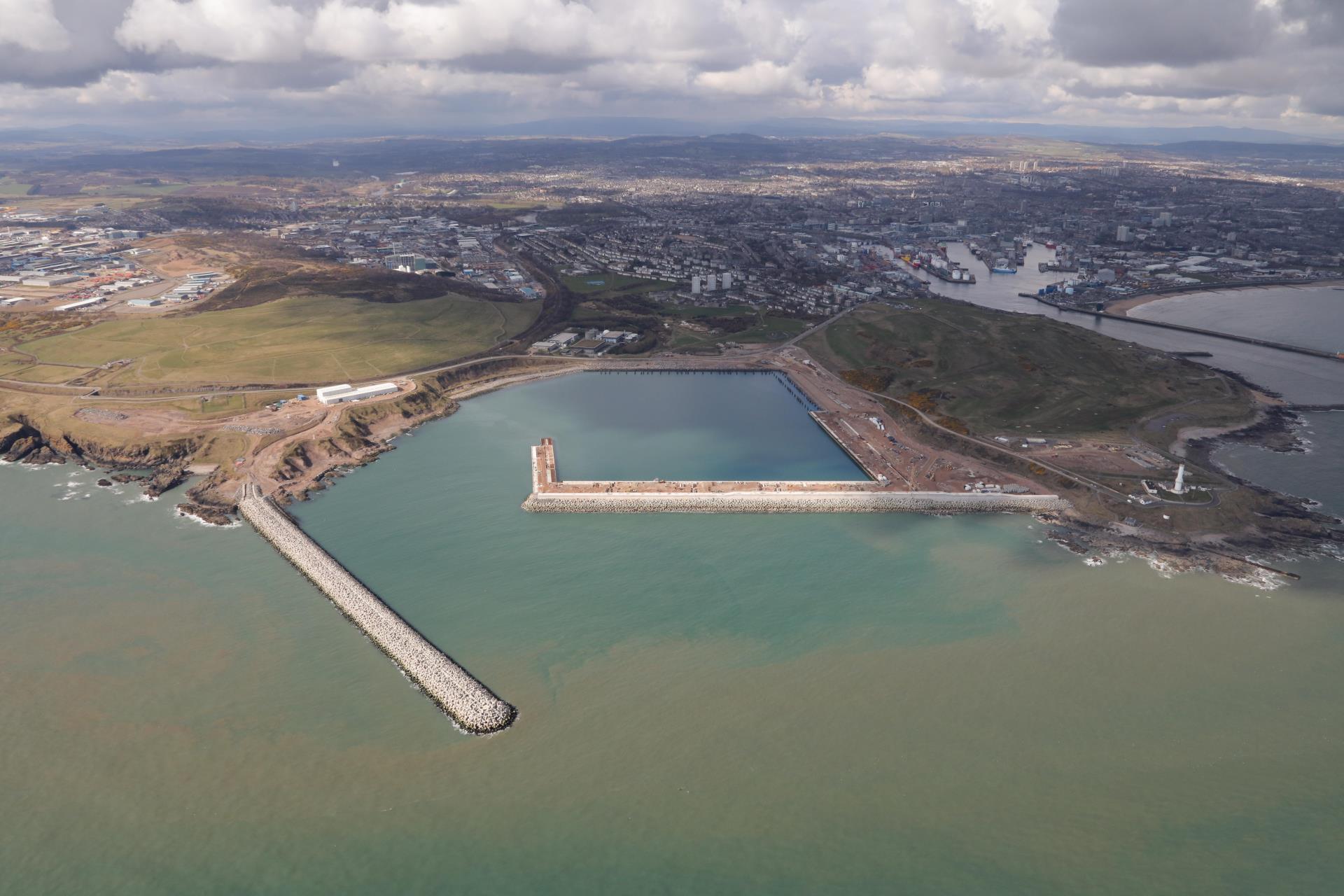 © Supplied by Port of Aberdeen
© Supplied by Port of Aberdeen